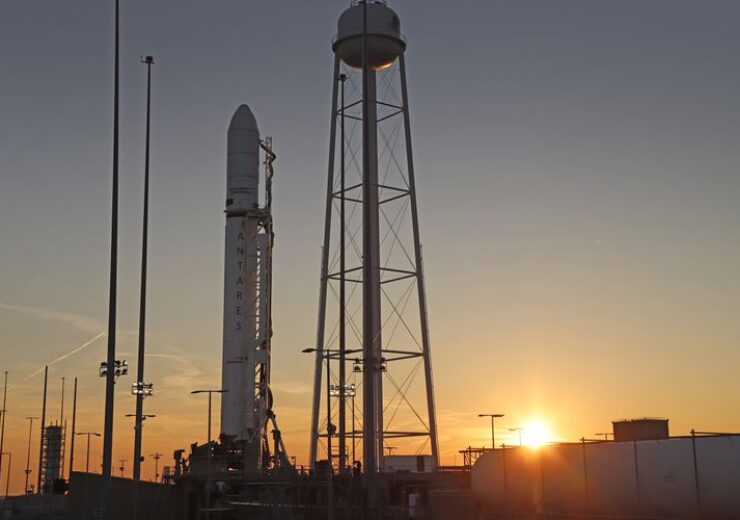The cargo resupply mission and the ISS reboost service is being executed by Northrop Grumman’s Cygnus spacecraft for the first time

Northrop Grumman launched the Cygnus spacecraft for the cargo resupply mission and the reboost service. (Credit: Northrop Grumman Corporation)
Northrop Grumman, under a contract from the National Aeronautics and Space Administration (NASA), has launched a cargo resupply mission to the International Space Station (ISS) where it will also carry out reboost service.
As part of NASA’s Commercial Resupply Service-2 (CRS-2) contract, the company will deliver 8,300 pounds of critical cargo to astronauts aboard the ISS.
The ISS reboost service is being executed by Northrop Grumman’s Cygnus spacecraft for the first time. For Northrop Grumman, it is the company’s 17th contracted resupply mission under the second commercial resupply services contract with the US space agency.
Launched on an Antares rocket from NASA’s Wallops Flight Facility on Wallops Island, Virginia on Saturday, the Cygnus spacecraft is slated to arrive at the space station today.
Cygnus will stay attached to the ISS for three months while carrying out the reboost. As part of this, the spacecraft will provide small, precise nudges to the ISS to place it back into its proper orbit.
Northrop Grumman will carry out the adjustment service while the Cygnus spacecraft is berthed with the space station.
Northrop Grumman civil and commercial space vice president Steve Krein said: “We are expanding the suite of value-added capabilities that we offer through our proven Cygnus programme.
“The addition of reboost services to Cygnus’ capabilities provides NASA with an even greater tool to advance space science and exploration, whether that’s on the International Space Station, the moon or beyond.”
According to NASA, Cygnus will deliver ISS with critical materials for supporting dozens of over 250 science and research investigations being taken up during the agency’s Expedition 66 mission aboard the station.
Cygnus’ stay at the space station will be until May prior to its deployment of CubeSats miniaturised satellites. After this, the spacecraft will dispose of several thousand pounds of the trash while re-entering into Earth’s atmosphere, which will lead to its destruction, said NASA.
In late 2021, Northrop Grumman had won a booster production and operations contract worth $3.19bn from NASA.


